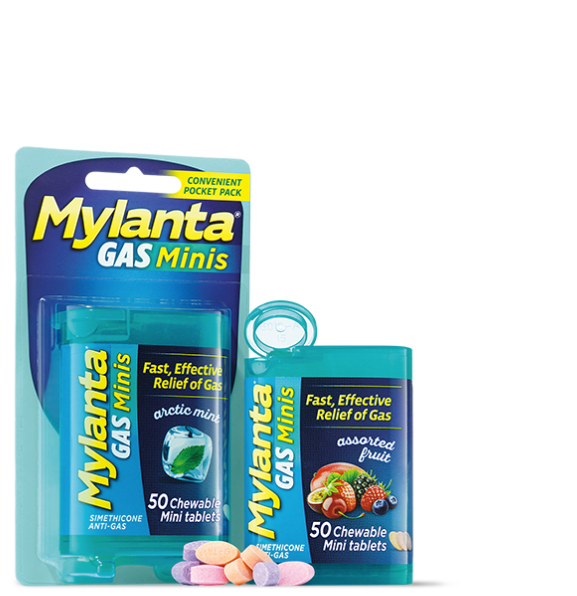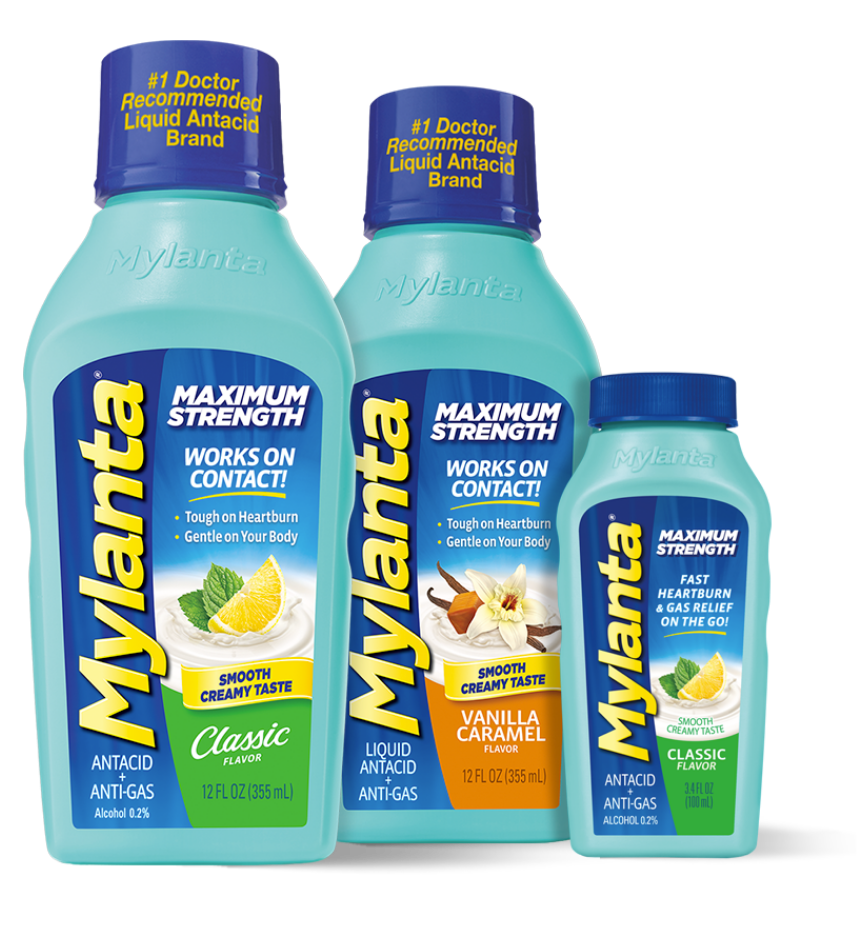When To Take Mylanta: Your Ultimate Guide To Heartburn Relief
Heartburn can hit you at the worst possible times, and knowing when to take Mylanta can make all the difference. Whether it's a burning sensation in your chest after a big meal or that middle-of-the-night discomfort, Mylanta has got your back. But hold up—there's more to it than just popping a pill. Let's dive into the when, why, and how of using this antacid powerhouse.
Imagine this: you're enjoying a delicious greasy burger, and suddenly, your chest feels like it's on fire. Sound familiar? That's heartburn coming to ruin your day, but don't worry, Mylanta is here to save the day. This antacid is not just any over-the-counter medication; it's a game-changer for acid reflux sufferers.
Before we dive into the nitty-gritty, let's get one thing straight—Mylanta isn't just for heartburn. It can help with a range of digestive issues, including acid indigestion and sour stomach. But when exactly should you reach for that bottle? That's what we're here to figure out. So grab a snack (but maybe not a spicy one), and let's get started.
Read also:Kristen Bell Hollywoods Stylish Mom And Her Inspiring Journey
Understanding Heartburn and Acid Reflux
Before we talk about when to take Mylanta, let's break down what heartburn and acid reflux really are. Heartburn is that uncomfortable burning sensation you feel in your chest, and it's usually caused by acid reflux. Acid reflux happens when stomach acid flows back up into your esophagus, and trust me, it's no picnic.
Common Symptoms of Heartburn
Here's a quick rundown of what you might experience if you're dealing with heartburn:
- A burning sensation in your chest, usually after eating.
- A sour taste in your mouth.
- Regurgitation of food or sour liquid.
- Coughing or hoarseness, especially at night.
These symptoms can range from mild to severe, and if they happen more than twice a week, you might be dealing with gastroesophageal reflux disease (GERD). Yikes, right?
What is Mylanta and How Does It Work?
Mylanta is an antacid that helps neutralize stomach acid, providing quick relief from heartburn and acid indigestion. It contains a mix of aluminum hydroxide and magnesium hydroxide, which work together to reduce the acidity in your stomach. Think of it as a superhero for your digestive system.
Types of Mylanta
There are different formulations of Mylanta, so it's important to choose the one that suits your needs. Here are the main types:
- Mylanta Original: For fast relief of heartburn and acid indigestion.
- Mylanta AR: A chewable tablet for on-the-go relief.
- Mylanta Liquid: For those who prefer a liquid form for faster action.
Each type has its own advantages, so it's all about what works best for you.
Read also:Kim Novak The Hollywood Legendrsquos Journey Beyond The Silver Screen
When to Take Mylanta for Heartburn Relief
Timing is everything when it comes to taking Mylanta. You don't want to wait until the pain is unbearable, but you also don't want to overdo it. Here's when you should consider reaching for Mylanta:
After a Large or Spicy Meal
Let's face it—sometimes we just can't resist that extra-large pizza or those spicy wings. If you know you've eaten something that might trigger heartburn, taking Mylanta after the meal can help prevent the discomfort. It's like having a safety net for your stomach.
When Symptoms First Appear
Don't wait for the pain to get worse. As soon as you feel that burning sensation creeping up, take Mylanta to nip it in the bud. The earlier you address the issue, the better the results.
Before Bedtime
If you're prone to nighttime heartburn, taking Mylanta before bed can help keep those symptoms at bay. Just make sure to follow the recommended dosage and avoid lying down immediately after taking it.
How Often Can You Take Mylanta?
While Mylanta is effective, it's important to use it as directed. Overuse can lead to unwanted side effects, so here's what you need to know:
Recommended Dosage
For adults, the general guideline is to take 1 or 2 tablespoons of Mylanta liquid or 2 chewable tablets every 6 to 8 hours as needed. However, it's always a good idea to check the label for specific instructions and consult your doctor if you have any concerns.
Potential Side Effects
Like any medication, Mylanta can have side effects, especially if used excessively. Keep an eye out for:
- Constipation or diarrhea.
- Nausea or vomiting.
- Headache.
If you experience any of these side effects, stop using Mylanta and talk to your healthcare provider.
Combining Mylanta with Other Medications
If you're taking other medications, it's important to be aware of potential interactions. Mylanta can affect how your body absorbs certain drugs, so it's crucial to discuss this with your doctor. For example, it might interfere with antibiotics or blood pressure medications, so timing is key.
Consulting Your Doctor
Always let your doctor know about all the medications you're taking, including over-the-counter ones like Mylanta. They can help you create a plan that ensures your treatment is both safe and effective.
Tips for Managing Heartburn
While Mylanta is a great tool for relief, there are other steps you can take to manage heartburn and reduce its occurrence:
Lifestyle Changes
Here are some lifestyle tweaks that can make a big difference:
- Avoid trigger foods like spicy, fatty, or acidic foods.
- Eat smaller, more frequent meals instead of large ones.
- Stay upright for at least 2-3 hours after eating.
- Quit smoking and limit alcohol consumption.
These changes might take some getting used to, but they can significantly improve your quality of life.
When to See a Doctor
While Mylanta can provide relief, persistent or severe heartburn might be a sign of a more serious condition. If you experience any of the following, it's time to see a doctor:
- Heartburn that occurs more than twice a week.
- Difficulty swallowing or pain when swallowing.
- Unexplained weight loss or vomiting.
Your health is important, so don't hesitate to seek professional advice if needed.
Conclusion
So there you have it—your complete guide to when to take Mylanta. Whether it's after a big meal, when symptoms first appear, or before bedtime, Mylanta can be your go-to solution for heartburn relief. But remember, it's all about balance. Use it as directed, make those lifestyle changes, and don't hesitate to consult your doctor if you have concerns.
Now it's your turn—have you tried Mylanta? What's your go-to remedy for heartburn? Leave a comment below and share your thoughts. And if you found this article helpful, don't forget to share it with your friends. Together, we can fight heartburn one step at a time.
Daftar Isi
Article Recommendations


